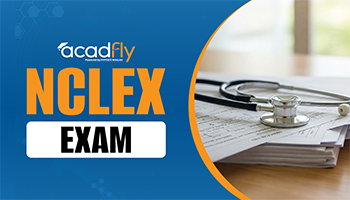

An education loan is a vital financial resource for students seeking to pursue higher education, both in India and abroad. Understanding who can apply for an education loan is essential for prospective students and their families. Generally, education loans are available to students who meet specific eligibility criteria set by banks and financial institutions. These criteria typically include factors such as age, academic qualifications, and the admission status of the applicant. In this article, we will explore the key aspects of eligibility to help you understand who can apply for an education loan and the conditions that must be met.
What are the requirements for education loan in india
Before applying for an education loan in India, it’s crucial to understand the various requirements set by banks and financial institutions. Knowing who is eligible, the necessary documentation, and the role of a co-applicant can significantly influence the approval process. Below are the key requirements to keep in mind when considering an education loan:
Eligibility of the Applicant
Applicants must be Indian citizens who have secured admission to recognized institutions in India or abroad. They should meet the necessary academic qualifications, such as completing higher secondary education or its equivalent.
Academic Requirements
Admission to a recognized educational institution is mandatory. This includes undergraduate, postgraduate, and diploma courses in various fields.
Co-Applicant Requirements
A parent, guardian, or spouse can serve as a co-applicant. The co-applicant’s income and credit history are crucial for loan approval.
Financial Documentation
Applicants must provide proof of the co-applicant's income, including salary slips, income tax returns, and bank statements, as these documents are essential for assessing loan eligibility.
Loan Amount and Repayment Capability
The loan amount is determined based on the applicant's needs and the co-applicant's repayment capability. Banks will evaluate the financial stability of the co-applicant to ensure the loan can be repaid.
Collateral Security
Depending on the loan amount, some banks may require collateral, such as property or fixed deposits, as security for the loan. This is especially relevant for larger loan amounts.
Can International Students Apply for Education Loans?
International students seeking financial assistance often wonder if they can apply for education loans in India. While the process and eligibility criteria might differ from those for domestic students, there are specific provisions available for international students. Understanding the requirements, who can be a co-applicant, and the loan application process is crucial for international students aiming to secure funding for their studies.
In India, international students can apply for education loans, but they must meet certain criteria. Typically, international students are required to have a co-applicant who is an Indian citizen. The co-applicant can be a parent, guardian, or even a relative residing in India. This person is responsible for the loan in case the student is unable to repay it. Additionally, the loan application often requires proof of admission to a recognized educational institution in India and adequate financial documentation from the co-applicant. It's essential for international students to understand these conditions to successfully navigate the loan process.
Can I Get an Education Loan?
Whether you can get an education loan depends on several factors, including your academic background, the course you plan to pursue, and the financial institution’s eligibility criteria. Typically, students who have secured admission to recognized institutions in India or abroad for professional or technical courses are eligible. Additionally, lenders consider your creditworthiness, the course’s potential to generate income after completion, and sometimes require collateral for higher loan amounts. Meeting these criteria increases your chances of obtaining an education loan.
Who Can Be a Co-Applicant for an Education Loan?
A co-applicant for an education loan is usually a close family member who shares responsibility for the repayment of the loan. Commonly, parents or legal guardians serve as co-applicants, but some banks may also accept siblings, spouses, or in certain cases, other relatives. The co-applicant’s financial status, credit history, and ability to repay the loan are taken into account during the application process. Having a reliable co-applicant with a stable income can significantly improve the chances of loan approval.
Who Can Get an Education Loan?
Education loans are available to students who meet the lender’s eligibility requirements, which generally include having secured admission to a recognized educational institution for higher studies. Both undergraduate and postgraduate students can apply for these loans, provided they are pursuing professional, technical, or management courses that have a high potential for employment. The applicant must be an Indian citizen, usually between the ages of 18 and 35, and have a good academic record. Additionally, some lenders may require a co-applicant with a strong financial background to guarantee the loan.
Education Loan Options for Undergraduate and Postgraduate Students
When considering education loan options for undergraduate and postgraduate studies, it's important to understand the distinct features and benefits tailored to each educational stage. These loans are specifically designed to support students in their academic pursuits, whether they are just beginning their higher education journey or advancing to more specialized, professional studies.
Undergraduate Education Loans
Undergraduate education loans are intended for students who have completed their higher secondary education and have secured admission to a recognized undergraduate program, whether in India or abroad. These loans typically cover a range of expenses, including tuition fees, accommodation, books, and other related costs. Some key aspects of undergraduate education loans include:
Loan Coverage
These loans generally cover the complete cost of education, which includes tuition fees, examination fees, accommodation, travel expenses (especially for studying abroad), books, and other necessary materials.
Eligibility Criteria
To be eligible for an undergraduate education loan, students must have secured admission to a recognized university or college. The courses eligible for financing usually include professional courses like engineering, medicine, law, and management, along with general academic courses.
Interest Rates
The interest rates for undergraduate education loans vary based on the lender and the student’s academic performance. Many lenders offer concessional rates for students with excellent academic records or those securing admission to prestigious institutions.
Repayment Terms
Repayment typically begins after the completion of the course, following a moratorium period that usually includes the course duration plus 6-12 months (often referred to as the "grace period"). This allows students to focus on their studies without the immediate pressure of repayment.
Postgraduate Education Loans
Postgraduate education loans cater to students who have completed their undergraduate degree and wish to pursue further studies, such as a master's degree, doctoral programs, or professional courses. These loans often come with features that reflect the advanced nature of the studies being financed:
Higher Loan Amounts
Given the often higher costs associated with postgraduate education, especially in fields like business administration, medicine, and law, these loans typically offer higher loan amounts. This is particularly true for students pursuing studies abroad where tuition and living expenses can be substantial.
Loan Coverage
Postgraduate loans cover all expenses related to the course, including tuition, living expenses, books, travel, and research-related costs. Some lenders may also offer additional funds for specialized equipment or software necessary for the course.
Interest Rates and Subsidies
Interest rates for postgraduate loans may be slightly higher due to the increased loan amount. However, students enrolling in recognized institutions may be eligible for interest rate subsidies or lower rates. In some cases, students pursuing studies in certain fields or at certain universities may qualify for special schemes that offer reduced interest rates.
Repayment Terms
The repayment structure for postgraduate loans is typically similar to undergraduate loans, with a moratorium period that includes the course duration plus an additional grace period. The repayment period can be longer, allowing flexibility in managing larger loan amounts.
Can Parents or Guardians Apply for an Education Loan?
Yes, parents or guardians can apply for an education loan, and they often need to as co-applicants. When considering who can apply for an education loan, it's important to note that lenders typically require a co-applicant to ensure repayment security, especially since students usually lack substantial income or credit history. Parents or guardians, who can be co-applicants for an education loan, must provide their financial information, including proof of income and credit history. This involvement is crucial in determining loan eligibility and securing better terms. For those wondering, "can I get an education loan?" involving a co-applicant such as a parent or guardian often increases the likelihood of loan approval and can help secure more favorable interest rates and repayment conditions.
Age Limitations for Education Loan Applications
Understanding age limitations is crucial when applying for an education loan. Different lenders and financial institutions may have specific criteria based on the applicant’s age. Here’s a detailed look at how age affects eligibility and application for education loans:
Eligibility Age for Applicants
Most lenders require that the primary applicant (student) be at least 18 years old at the time of applying for an education loan. Some institutions may accept applicants as young as 17 if they are enrolled in a higher education program and have a co-applicant.
Maximum Age for Loan Eligibility
Typically, there is no strict upper age limit for students applying for an education loan, but some lenders may have guidelines or restrictions, particularly for post-graduate programs. For certain courses or loans, lenders may prefer applicants below the age of 30 or 35.
Age of Co-Applicants
Co-applicants, usually parents or guardians, should be within a reasonable age range, typically between 21 and 60 years. Lenders seek to ensure that co-applicants have a stable financial status and are likely to be around for the duration of the loan.
Age for Repayment
Education loans generally have repayment periods starting after the completion of the course. Borrowers should be mindful of their age as they approach the end of their studies to ensure they can manage repayments.
Age Considerations for Certain Loans
Some specialized loans or scholarships may have specific age restrictions or preferences. Always check the specific criteria of the loan provider or educational institution.
Impact of Age on Loan Terms
Older applicants may face different terms or conditions, such as higher interest rates or shorter repayment periods, based on their age and career prospects.
FAQs on who can apply for education loan
1. Who can apply for an education loan?
Anyone seeking to pursue higher education can apply for an education loan, provided they meet the eligibility criteria set by the lender. Typically, the applicant must be a student who is at least 18 years old and enrolled in a recognized educational institution.
2. Can I get an education loan if I am a minor?
Minors cannot apply for an education loan directly. However, if you are under 18, you will need a co-applicant, usually a parent or guardian, to apply on your behalf. The co-applicant must fulfill the lender's eligibility criteria.
3. Who can be a co-applicant for an education loan?
A co-applicant for an education loan is usually a parent, guardian, or sometimes a close relative who has a stable income and a good credit history. They are responsible for the repayment of the loan if the primary applicant defaults.
4. Are there specific requirements for who can apply for an education loan?
Yes, applicants typically need to meet certain requirements such as being enrolled in a recognized institution, having a good academic record, and in some cases, meeting age and financial criteria. Co-applicants must also provide proof of income and creditworthiness.
5. Can international students apply for education loans?
International students can apply for education loans, but they often need to provide additional documentation and may need a co-applicant who is a citizen of the country where the loan is being applied. Loan terms may vary based on the lender's policies.
6. What are the requirements for an education loan in India?
In India, to apply for an education loan, applicants must be enrolled in a recognized institution, typically be at least 18 years old, and have a co-applicant if required. Financial documents, proof of admission, and academic records are generally needed.
Frequently Asked Questions









